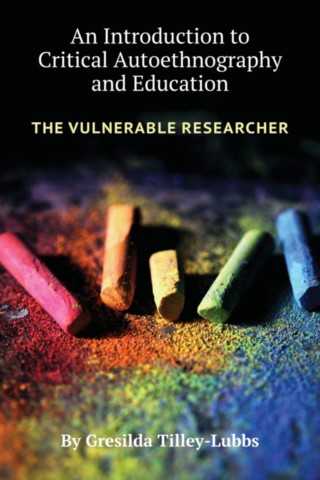
Library E-Books
We are signed up with aggregators who resell networkable e-book editions of our titles to academic libraries. These editions, priced at par with simultaneous hardcover editions of our titles, are not available direct from Stylus.
These aggregators offer a variety of plans to libraries, such as simultaneous access by multiple library patrons, and access to portions of titles at a fraction of list price under what is commonly referred to as a "patron-driven demand" model.
E-books are now distributed via VitalSource
VitalSource offer a more seamless way to access the ebook, and add some great new features including text-to-voice. You own your ebook for life, it is simply hosted on the vendor website, working much like Kindle and Nook. Click here to see more detailed information on this process.
Language: English
An Introduction to Critical Autoethnography and Education: The Vulnerable Researcher examines the practice of critical autoethnography, which combines critical pedagogy, autoethnography, and often, critical ethnography, as a research methodology for conducting research in vulnerable communities without establishing hierarchical systems. Researchers who work collaboratively with participants in these communities can provide a means for often-unheard voices to reach wider audiences.
Researchers function as collaborators/participants in the research, asking themselves the same questions they ask the other participants in the research. This methodology requires reflection and introspection, as researchers examine the Self and the complexities of their cultural perspectives, whether visible or invisible, hidden beneath layers of socially constructed beliefs and behaviors. This interrogation and problematization of words and actions surpasses chronological and supposedly objective recounting of autobiography, leading to a deep understanding of the sociocultural, socioeconomic, political, and historical beliefs that created their ways of understanding and navigating the world. Traditional research situates researchers as experts. Pushing against existing norms, critical autoethnography negates hierarchical thinking, believing all collaborators co-construct equally valuable knowledge and meaning.
Accessible to diverse audiences, this book would be appropriate in graduate qualitative methods or foundations courses, at introductory or advanced levels. It would also be a good addition to any undergraduate courses preparing students to conduct research in vulnerable communities.
Perfect for courses such as: Qualitative Research Methods I | Qualitative Research Methods II | Advanced Qualitative Research Methods | Social Justice in Education Research | Case Study | Ethnographic Research in Education | Anthropology in Education | Critical Qualitative Inquiry | Multicultural Research Methods




